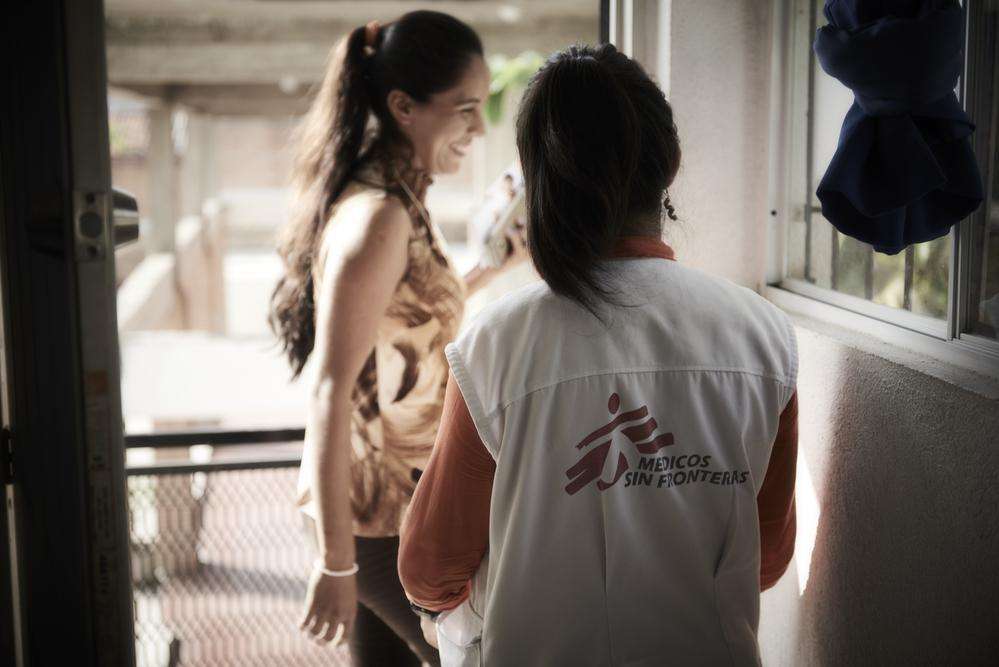Once famous as a resort city, Acapulco, Mexico, now has one of the highest murder rates in the world. Violence here touches all aspects of life, both public and private. Across the city, murders, kidnappings, extortion, shootings, rapes, and sexual assaults happen every day. In response, Doctors Without Borders/Médecins Sans Frontières (MSF) runs a psychosocial and mental health care project to help survivors of sexual violence—some of Acapulco’s most vulnerable people.
"When we started this project, we realized that the violence had taken deep root and was normalized among the people of Acapulco,” says Nadia Rivera, an MSF psychologist working in Guerrero state. “The impact on the mental health of the population was evident; people have become used to living in fear. In addition, sexual violence has become a common social and cultural problem."
More than 80 percent of the patients treated by MSF are women and girls. "My family told me that it was normal—that this happened in all relationships, and that I had to put up with it,” says Marbella, a 22-year-old woman who was sexually abused by her husband. “In the eyes of others, I was the unusual one [for speaking out].”
Promoting health
Sexual violence should be treated as a medical emergency. In Acapulco, MSF is working to guarantee care to all survivors of sexual violence, ensuring the right of access to health services, and educating the wider community about the importance of seeking immediate help. Our social psychologists and health promoters also evaluate local needs and carry out community activities, including education on prevention and detection of sexual violence.
"When I looked for help, they told me it was my fault because I lived with the violence,” says Marbella. “Then I started going to the MSF health promoters' talks, where I realized that nobody has to put up with a situation like that. MSF's attention came when I needed it most. I had lost hope—I felt ashamed, and I thought that my family was right, that's why I stopped looking for help. So finding someone who would listen and help me was very important.”
But in Acapulco’s atmosphere of extreme violence, reaching the people most in need of care can be difficult. "One of the great challenges of the project was gaining the trust of the people and getting them to trust health professionals enough to tell us [about] their experiences, such as having been the victim of sexual abuse—especially when it happened in the home," says Rivera.
“As a woman, it is not easy to raise your voice, but do not be afraid—there are always good people who help you. You just have to break the barriers to be able to say: enough is enough.”
Marbella, MSF patient
Deep wounds
The physical and emotional wounds caused by sexual assault run deep and receiving immediate medical attention after an attack is vital. Ensuring treatment for the victims within the first 72 hours, including emergency contraceptives and post-exposure prophylaxis, is essential to prevent unwanted pregnancies as well as infection with HIV or other sexually transmitted diseases.
As widespread violence has made it difficult for residents and health professionals to access many health centers, MSF now offers health services and comprehensive medical, psychological, and social care to victims of sexual violence in two hospital units in the city through a collaboration with the Guerrero State Secretary of Health. Through this partnership, in 2018 MSF cared for 58 survivors of sexual violence in Acapulco. Forty percent of the victims were minors.
"I had knocked on doors, and they had rejected me. I faced many obstacles. I lived with violence in many ways. I approached the authorities without receiving an answer,” says Marbella. “As a woman, it is not easy to raise your voice, but do not be afraid—there are always good people who help you. You just have to break the barriers to be able to say: enough is enough.”






